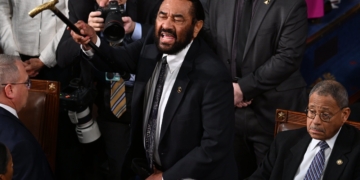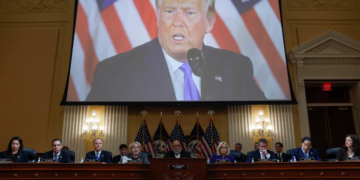American billionaire Elon Musk caused a stir in the American political arena with his announcement on July 5 of the establishment of a political party called “America Party,” representing 80% of the American population’s centrist base. Musk stated that this would end the dominance of a single party in government and revive the country’s democratic system.
Founding the America Party:
The announcement of the founding of the America Party came after the dispute between Elon Musk and US President Donald Trump reached a critical point following the passage of the new tax and spending bill, which Trump considered “big and beautiful,” while Musk considered it “crazy” and “destructive,” believing it would increase the national deficit by trillions of dollars.
Party Strategy:
Musk explained that his strategy for the new party is based on winning a limited number of seats in the Senate and House of Representatives—about two or three in the Senate and eight to ten in the House of Representatives—which would enable the party to vote decisively to approve or reject controversial legislation.
The Major Rift with Trump:
After being one of Trump’s biggest supporters in the 2024 election, Musk donated more than $277 million to his campaign. However, their relationship quickly deteriorated over the tax bill. Trump attacked Musk on the Truth Social website, suggesting that the success of his business depends on government support. Musk responded with scathing criticism, describing the law as “debt slavery.”
Challenges Facing the Emerging Party:
According to analysts, Musk’s party faces significant challenges, including the fragmentation of the centrist voter base and the difficulty of challenging the two-party system, given the many laws that hinder the formation of a third party.
Will Musk fight to the end to establish his party and endure the political losses that may be incurred before achieving success?

What are the obstacles to establishing a successful political party in America that competes with the Republican and Democratic parties?
There are many obstacles that make the attempt to establish a new political party a risky venture. Here are the most prominent of these obstacles:
Ballot Access Laws:
Laws require anyone wishing to run for office to collect thousands of supporting signatures, which in some states can reach tens of thousands, especially in states like Florida and Texas.
Exorbitant filing fees are imposed, which are usually affordable for only a limited number of candidates.
Parties must meet all the required requirements by a specific deadline, which is difficult for anyone outside the Republican and Democratic parties to meet.
Winner-Take-All:
The candidate who wins most states by a proportional margin receives all the votes without a proportional distribution, preventing any third party from winning a seat in the House of Representatives, as voters fear choosing candidates from outside the Republican and Democratic parties for fear of losing their votes.
Public and Private Financing System:
Public financing of campaigns is only available to parties that have achieved a certain percentage of the vote in the previous election, and is rare for third parties. Political action committees and major donations typically support the two major parties, limiting third parties’ ability to raise funds.
Electoral College:
In presidential elections, the president is chosen through the Electoral College, where the candidate wins all of a state’s electoral votes if they receive a majority in that state, with the exception of a few states. This system makes it nearly impossible for a third-party candidate to win the presidency.
State Laws on Third Parties:
Some states impose additional restrictions, such as requirements to maintain party standing and restrictions on third-party candidates’ participation in public debates.
Debate Exclusion:
The Commission on Presidential Debates (CPD), which organizes presidential debates, requires a candidate to have at least 15% support in national polls to participate, a threshold that is difficult for third-party candidates to achieve, limiting their chances of gaining media exposure and garnering support.
Party Loyalty and Political Culture:
The American political system fosters a strong bipartisan culture, where voters tend to support one of the two major parties due to historical loyalty or fear of wasting their vote.
Legislation that Protects the Two Major Parties:
Some laws, such as those governing how electoral districts are drawn, reinforce the dominance of the two major parties, as districts are designed to favor one party, reducing the opportunities for third parties.
Musk vs. Trump
What are the chances of the America Party and Donald Trump winning the 2028 election?
Donald Trump: He is not eligible to run in the 2028 election under the 22nd Amendment to the U.S. Constitution, which limits the presidency to two terms. Trump won in 2016 and 2024. However, he remains influential in the Republican Party and may support candidates such as J.D. Vance or Ron DeSantis, who are considered front-runners for the 2028 Republican nomination.
The America Party’s Chances of Winning the 2028 Election: The America Party, founded by Elon Musk in July 2025, faces significant challenges due to the U.S. electoral system, but it benefits from Musk’s financial influence and his electoral platform (X).
Because it targets centrist and independent voters, it may appeal to those disillusioned with both major parties.
The party’s strategy focuses on winning limited seats in Congress to influence legislation, a more realistic goal than the presidency.
Musk’s popularity among young people and entrepreneurs may help build a new voter base.
Does the president-elect in 2028 have the right to relinquish his position to an influential figure like Donald Trump?
The U.S. Constitution contains no provision allowing the president-elect to relinquish his position to someone outside the line of succession established by the Twenty-Fifth Amendment. Any attempt to circumvent these rules would be illegal and would face challenges from Congress or the courts.




















